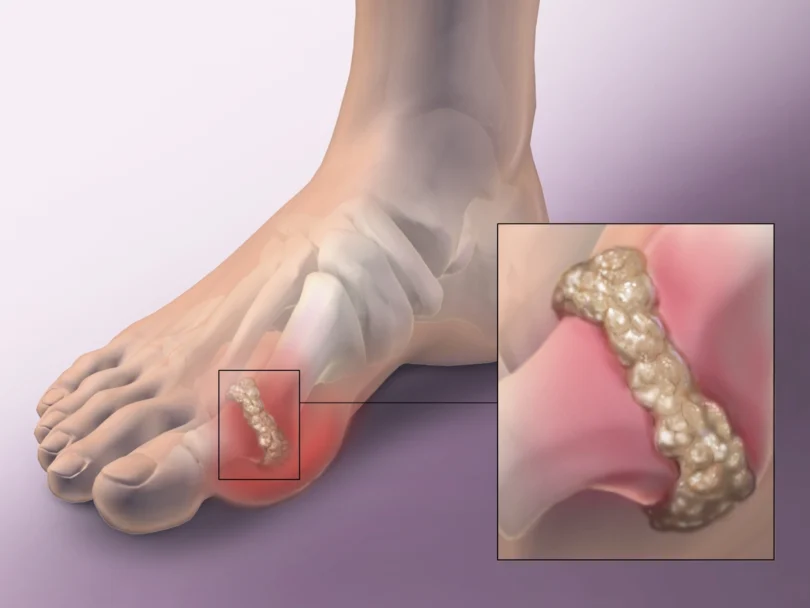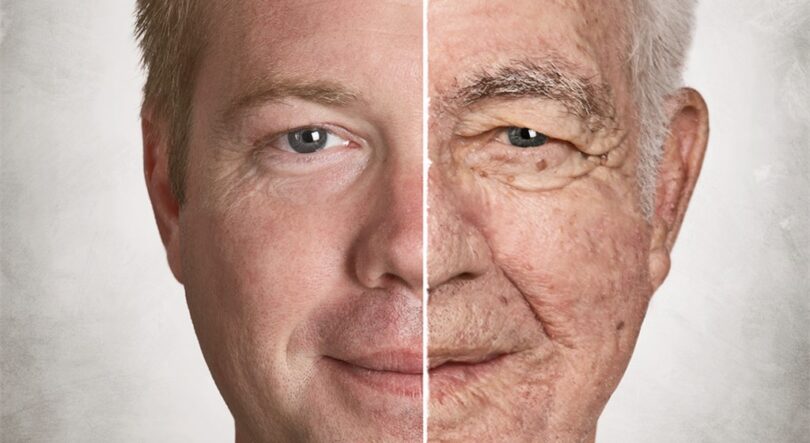How to Lower Blood Sugar
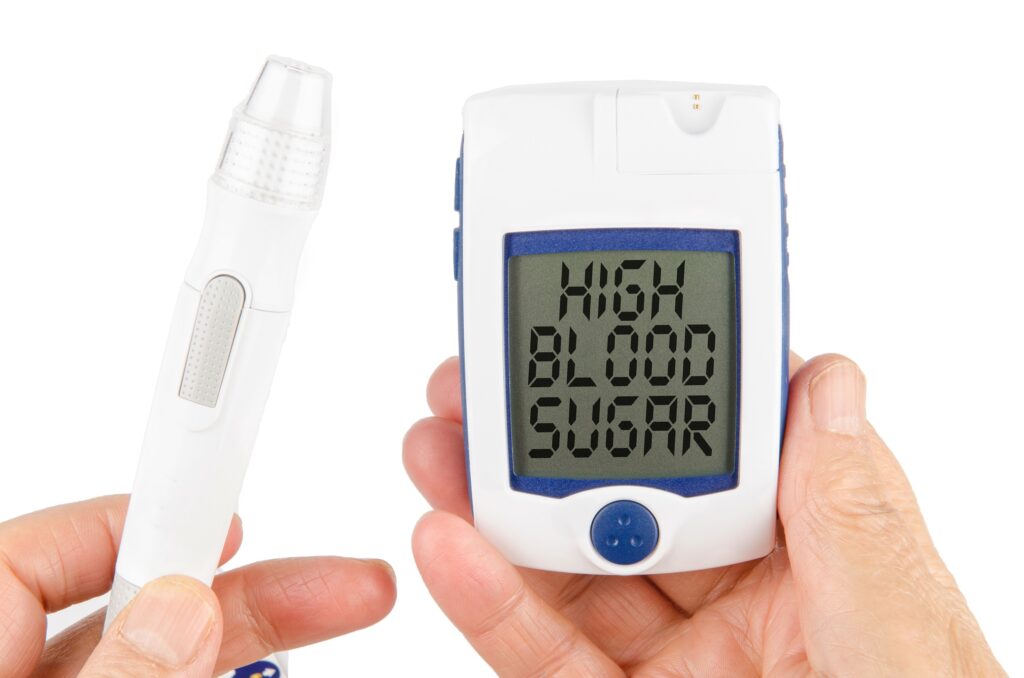
Introduction
Managing blood sugar levels is crucial for overall health, especially for individuals with diabetes or those at risk of developing the condition. High blood sugar, or hyperglycemia, can lead to various health complications, while consistently elevated levels can increase the risk of diabetes-related complications over time. In this article, we’ll explore effective strategies to lower blood sugar levels naturally and improve overall well-being. With a focus on lifestyle changes and healthy habits, these methods can be beneficial for anyone looking to maintain stable blood sugar levels. Let’s dive into the first set of tips to help you achieve lower blood sugar.
1. Stay Hydrated
Proper hydration is fundamental for managing blood sugar levels. Water helps your kidneys flush out excess sugar through the urine, which can contribute to more stable blood sugar readings. Aim to drink at least 8 cups (64 ounces) of water per day, and adjust your intake based on individual factors such as climate and physical activity levels. Avoid sugary drinks and opt for water, herbal teas, or unsweetened beverages to support your efforts in lowering blood sugar.
2. Choose Complex Carbohydrates
When planning your meals, opt for complex carbohydrates that are high in fiber. Foods like whole grains (brown rice, quinoa, whole wheat), legumes (beans, lentils), and vegetables should be staples in your diet. Unlike simple carbohydrates found in sugary treats and refined grains, complex carbohydrates take longer to digest, leading to a slower rise in blood sugar levels. The fiber content also aids in better blood sugar control and improves overall digestive health.
3. Portion Control
Controlling portion sizes can have a significant impact on blood sugar levels, especially if you are trying to lower them. Be mindful of portion sizes for all food groups, including carbohydrates, proteins, and fats. Eating large meals can cause spikes in blood sugar, while smaller, more frequent meals spread throughout the day can help maintain steady levels. Consider using smaller plates to avoid overeating and focus on eating until you feel satisfied rather than overly full.
4. Engage in Regular Physical Activity
Physical activity is one of the most effective ways to lower blood sugar levels. Exercise helps your cells use blood sugar for energy, reducing its concentration in the bloodstream. Aim for at least 150 minutes of moderate-intensity aerobic exercise or 75 minutes of vigorous-intensity aerobic exercise per week, along with muscle-strengthening activities on two or more days per week. Walking, cycling, swimming, and dancing are excellent options to incorporate into your routine.
Remember, consult with your healthcare provider before starting a new exercise regimen, especially if you have any pre-existing health conditions or concerns.
you may be interested in reading this: 5 Effective Weight Management Tips
Diet Modifications for Lower Blood Sugar
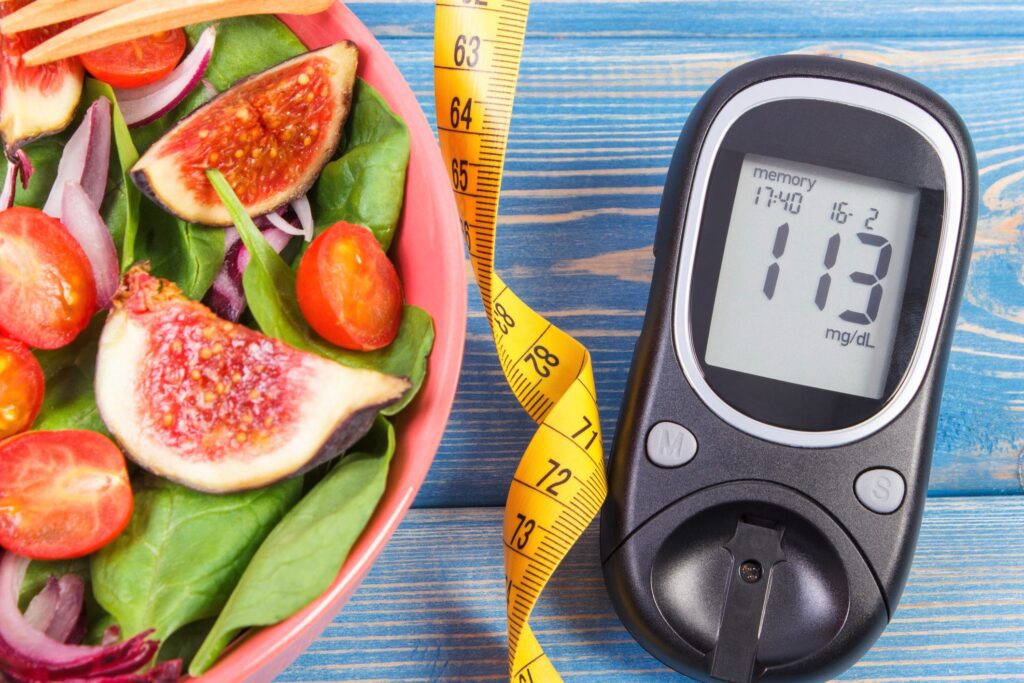
A well-balanced and mindful diet plays a crucial role in managing blood sugar levels. By making smart food choices and incorporating specific nutrients into your meals, you can significantly impact your blood sugar levels in a positive way.
5. Include Lean Proteins
Pairing carbohydrates with lean proteins can help slow down the absorption of sugars into your bloodstream. Opt for protein sources such as lean meats (chicken, turkey, fish), tofu, tempeh, beans, and lentils. These proteins not only aid in stabilizing blood sugar but also provide essential amino acids for muscle health and repair.
6. Opt for Healthy Fats
Incorporating healthy fats into your meals can also contribute to better blood sugar control. Focus on monounsaturated and polyunsaturated fats found in foods like avocados, nuts, seeds, and olive oil. These fats have been associated with improved insulin sensitivity and heart health.
7. Limit Added Sugars and Processed Foods
One of the most critical steps in lowering blood sugar is to reduce the consumption of added sugars and highly processed foods. These foods can cause rapid spikes in blood sugar levels and contribute to insulin resistance over time. Read food labels carefully and be aware of hidden sugars in various processed products.
8. Prioritize High-Fiber Foods
Fiber is a superstar when it comes to managing blood sugar levels. High-fiber foods not only slow down the absorption of sugars but also improve satiety and support digestive health. Incorporate a variety of fruits, vegetables, whole grains, and legumes into your diet to increase your daily fiber intake.
you may be interested in reading this: How do I maintain my health with food?
9. Mindful Eating Practices
Practicing mindful eating can help you make better food choices and prevent overeating. Eat slowly and savor each bite, paying attention to hunger and fullness cues. Avoid distractions like television or smartphones during mealtime, as they can lead to mindless eating.
10. Monitor Carbohydrate Intake
Carbohydrates have the most significant impact on blood sugar levels, so monitoring your carbohydrate intake is essential. Consider working with a registered dietitian or nutritionist to determine the appropriate amount of carbohydrates for your individual needs and health goals. This way, you can maintain stable blood sugar levels without feeling deprived.
Lifestyle Modifications for Lower Blood Sugar
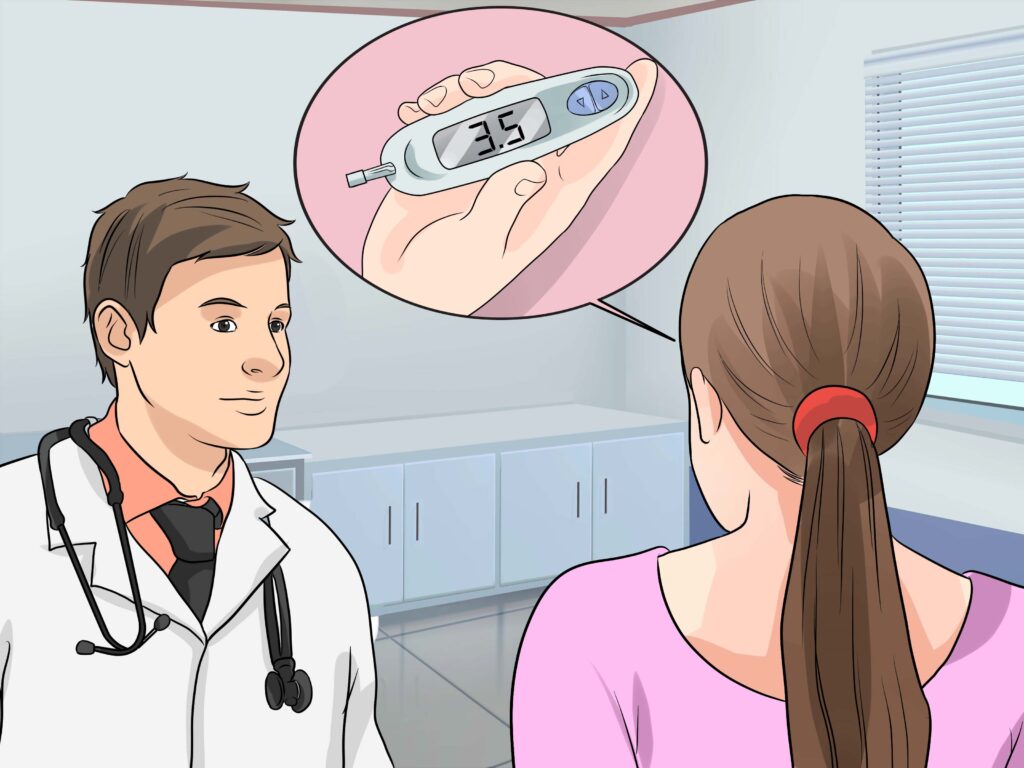
In addition to diet, certain lifestyle changes can have a significant impact on blood sugar levels. Adopting healthier habits can support your efforts in managing blood sugar and promote overall well-being.
11. Get Sufficient Sleep
Quality sleep is essential for maintaining stable blood sugar levels. Lack of sleep can lead to increased insulin resistance and higher blood sugar levels. Aim for 7-9 hours of restful sleep each night, and establish a consistent sleep schedule to support your body’s natural rhythms.
12. Manage Stress
Chronic stress can lead to elevated blood sugar levels as the body releases stress hormones that can interfere with insulin regulation. Engage in stress-reducing activities such as meditation, yoga, deep breathing exercises, or spending time in nature. Finding healthy ways to cope with stress can positively impact your blood sugar and overall health.
13. Regular Blood Sugar Monitoring
Frequent monitoring of your blood sugar levels is essential for understanding how your body responds to various foods and lifestyle changes. Work with your healthcare provider to establish a monitoring schedule that suits your individual needs. By keeping track of your blood sugar readings, you can identify patterns and make informed adjustments to your daily habits.
14. Maintain a Healthy Weight
For those who are overweight or obese, losing even a modest amount of weight can lead to improved blood sugar control. Adopt a well-balanced diet and engage in regular physical activity to achieve and maintain a healthy weight. Losing excess weight can enhance insulin sensitivity and reduce the risk of diabetes-related complications.
15. Quit Smoking
If you smoke, quitting is one of the most impactful steps you can take to improve your blood sugar and overall health. Smoking not only increases the risk of diabetes but also exacerbates complications associated with the condition. Seek support from healthcare professionals or support groups to help you quit successfully.
16. Stay Active Throughout the Day
Incorporate movement into your daily routine to promote better blood sugar management. Regular physical activity can help your body use insulin more efficiently and lower blood sugar levels. Consider taking short walks after meals, using the stairs instead of elevators, or engaging in light exercises during work breaks.
17. Hygiene and Medication Adherence
For individuals with diabetes, proper hygiene and adherence to prescribed medications are crucial for blood sugar management. Follow your healthcare provider’s recommendations for medication dosage, timing, and administration. Keep your insulin and diabetes supplies clean and stored appropriately to ensure their effectiveness.
18. Social Support
Building a strong support system can make managing blood sugar levels more manageable. Share your health goals with family and friends, and involve them in your journey to lower blood sugar. Having a network of support can keep you motivated and accountable for making positive lifestyle changes.
Stay tuned for the final part, Part 4, where we’ll wrap up with additional practical tips and conclude the guide on how to lower blood sugar naturally. Always remember to consult with your healthcare provider to create a personalized plan that aligns with your specific health needs and goals.
you may be interested in reading this: What Experts Are Saying About Female Friendship and Support
Additional Practical Tips for Lowering Blood Sugar
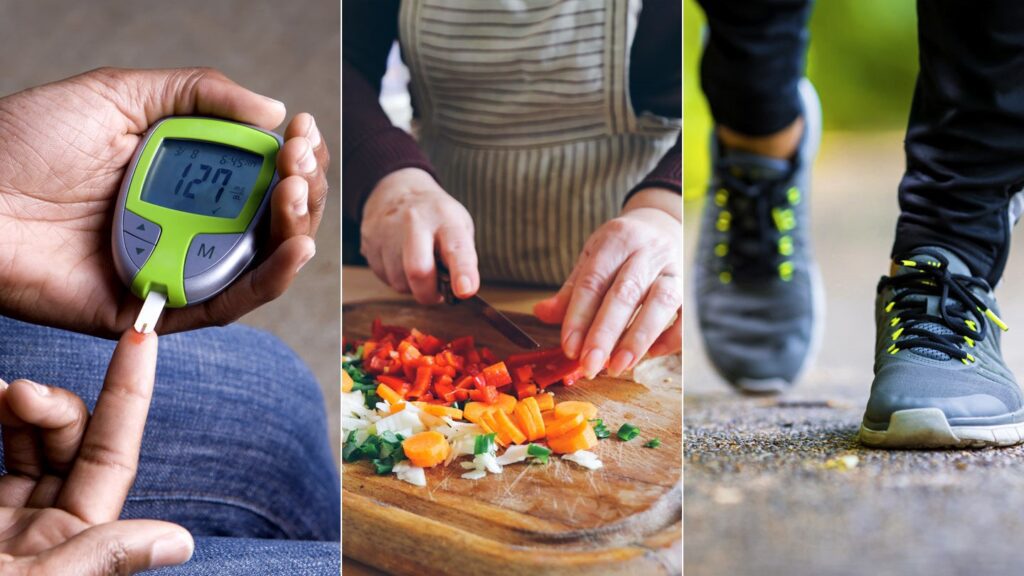
Continuing on our journey to naturally lower blood sugar levels, let’s explore more practical tips and advice that can help you achieve better glycemic control and overall health.
19. Engage in Regular Exercise
In addition to daily physical activity, engaging in regular exercise is vital for blood sugar management. Choose exercises that you enjoy and can incorporate into your routine consistently. Whether it’s brisk walking, jogging, cycling, or swimming, aim to maintain a regular exercise schedule to reap the full benefits of improved blood sugar levels.
20. Avoid Sedentary Behavior
Reduce sedentary behavior, such as prolonged sitting or inactivity. Even if you engage in regular exercise, excessive sitting can have negative effects on blood sugar levels. Stand up and move around every hour, even if it’s just for a few minutes. Consider using a standing desk or taking short walks during work breaks.
21. Choose Vinegar
Vinegar has been shown to have a positive impact on blood sugar levels. Including vinegar in your diet, such as apple cider vinegar, can help lower post-meal blood sugar spikes. Add a splash of vinegar to salad dressings or diluted in water before meals to enjoy its potential benefits.
22. Control Portion Sizes of High-Glycemic Foods
While complex carbohydrates are preferable, if you consume high-glycemic foods occasionally, focus on portion control. High-glycemic foods, such as white bread and refined grains, can cause rapid spikes in blood sugar. By limiting the portion size, you can mitigate their impact on blood sugar levels.
you may be interested in reading this: Top 10 Antioxidant-Rich Foods to Halt Aging
23. Regular Medical Checkups
Regular checkups with your healthcare provider are essential for monitoring your blood sugar levels and overall health. Your healthcare team can adjust your treatment plan, medications, or lifestyle recommendations as needed to achieve optimal blood sugar control.
24. Educate Yourself
Empower yourself with knowledge about diabetes management, blood sugar, and nutrition. Attend diabetes education classes or seek information from reliable sources to understand your condition better. Being well-informed can help you make informed decisions about your diet and lifestyle choices.
25. Celebrate Progress
Lowering blood sugar levels can be a gradual process, and it’s essential to acknowledge and celebrate your progress along the way. Set achievable goals and reward yourself for accomplishing them. Celebrating small victories can keep you motivated and committed to your health journey.
Conclusion
Lowering blood sugar levels naturally requires a combination of healthy eating habits, regular physical activity, stress management, and consistent medical care. By adopting a well-balanced diet rich in complex carbohydrates, lean proteins, and healthy fats, you can maintain stable blood sugar levels and support overall health.
Incorporate these practical tips into your daily routine and tailor them to suit your unique needs and preferences. Remember that maintaining lower blood sugar levels is an ongoing journey that requires commitment and patience. By making these positive lifestyle changes, you’re taking significant steps towards better blood sugar control and a healthier, more fulfilling life.
Always work closely with your healthcare provider to create a personalized plan that addresses your specific health conditions and goals. Together, you can navigate the path to lower blood sugar levels and enjoy the benefits of improved overall well-being.

Amelya Evelyn is freelance writer, health reporter, and author, she shares her experiences in the hope that others will feel less alone in their health struggles.She loves breaking down complex science and health information, making it easier for people to understand


